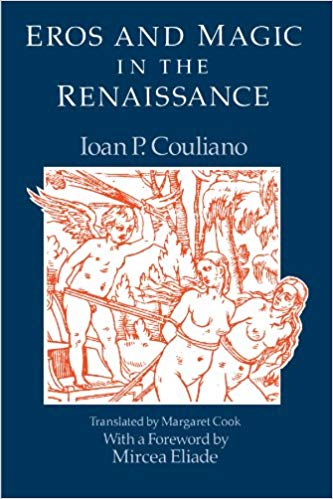Two very different pieces of possible interest
Wednesday, January 29th, 2020[ by Charles Cameron — one for those who follow apocalyptic strands in RL and media, one for those who follow Vimalakirti, Heraclitus and the Glass Bead Game — recommended ]
.
Tim Furnish reviews the Netflix series, Messiah:
An Iraqi Refugee Trained in Illusion Who Works Miracles — Christ or Anti? Masih or Dajjal? That’s the situation posed by the Netflix series, Messiah, and it’s presented with sufficient subtlety that the answer’s not as obvious as it may seem from that quick condensation — and indeed, at the end of the series, there’s still sufficient ambiguity to keep you guessing, and the producers in line for a renewed contract and second series..
It’s not quite subtle enough to please our friend Tim Furnish, however, who gives a fine overview of the series, then takes the details of eschatological hadith and Biblical writings a step further into accuracy, and thus depth. His opening paragraphs:
“One man’s messiah is another man’s heretic.” That’s the opening line of my first book on Islamic messianic figures. It’s also an apt summary of Netflix’s excellent new show Messiah. Its 10-episode first season was released on Jan. 1. Let’s hope it gets renewed. We need to know how this story of a charismatic Middle Eastern miracle worker, who not only attracts Christians, Muslims and Jews but sways the U.S. President, plays out. Here’s a brief (as possible) summary.
A Modern-Day Messiah?
A long-haired, thinly bearded man appears in Damascus and accurately predicts the destruction of besieging ISIS forces. Many Palestinians there follow him into the desert, believing him to be al-Masih, “The Messiah.” He leads them to the Israeli border. The movement gets on the CIA’s radar screen. The group reaches the Israeli border, and al-Masih crosses. He’s arrested and interrogated by a Shin Bet agent, about whom he knows personal details. He then disappears from prison (later we find out the prison guard let him go, believing him the Messiah) and reappears on the Temple Mount. In a confrontation near the Dome of the Rock, Israeli soldiers shoot a young boy — whom al-Masih heals. He then disappears again, showing up soon after in Dilley, Texas. He is caught on cell phone cameras stopping a tornado about to destroy the Baptist church. This goes viral and many flock to the town. The church pastor believes him to be Jesus returned and becomes his spokesman and handler.
Well there’s plenty more, obviously, and I highly recommend Tim’s commentary — they should have hired him as a consultant.
To read more, go to Netflix’s Messiah Reviewed: Who’s Your Messiah Now?
**
Very different indeed is JustKnecht‘s exquisite weaving of ideas around Basho, Vimalakirti and a whiff of Chick Corea in his Notes on a winter journey to the interior, subtitled (and subtled) “on a treadmill facing north” — the reference is to Basho‘s Narrow Road to the Deep North which you really ought to know already.
And that’s a bit of a point. You really ought to know already: Basho and Vimalakirti, Heraclitus and Tamsin Lorraine, heaven and earth, and as it is in heaven, so it already and always is on earth, for as above, so below.
For myself, I know each of these with glancing blows, while JustKnecht knows each in depths I cannot match. Reading the whole is, for me, a sustained flight in the Absolute as viewed through thr world’s cultures, with butterflies a particular point of reference — and a long-tailed bired in seven syllables that’s almost an angel — or an apsara?. — ah, peacocks, too.
In any case, an education — and a delight.
Late afternoon, cooling down after a hard run in the condo gym, Herbie Hancock’s Butterfly breezes onto my playlist. We breathe together deeply, and I don’t know whether it is I dreaming that I am the bass clarinet, or the bass clarinet dreaming that it is I.
The music and the vision fades, and I’m sitting in my armchair doing mental exercise. From high school trombonists and collegiate level cello students to elite athletes and surgeons, cognitive rehearsal in the absence of physical movement has been shown to improve physical performance. In the same way, listening to one of my 5K run playlists gives me a perfectly good workout without the inconvenience of even moving a muscle.
Reade more: Notes on a winter journey to the interior — ah yes, the interior!
Thank you: I bow






